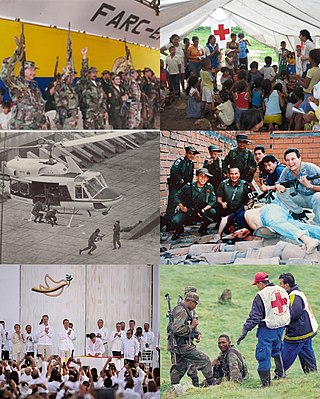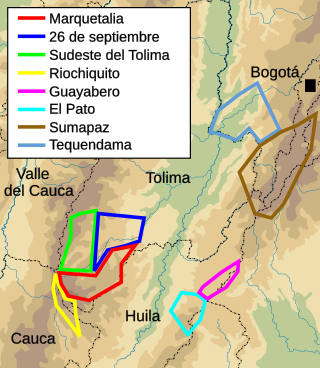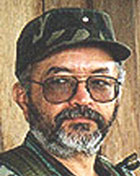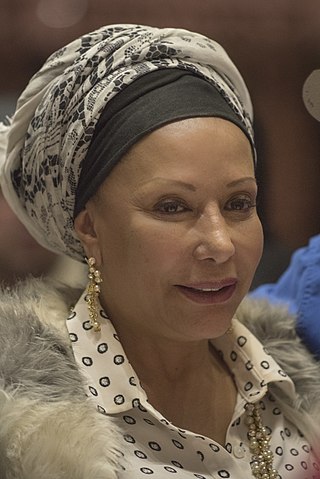
The Revolutionary Armed Forces of Colombia – People's Army is a Marxist–Leninist guerrilla group involved in the continuing Colombian conflict starting in 1964. The FARC-EP was officially founded in 1966 from peasant self-defense groups formed from 1948 during the "Violencia" as a peasant force promoting a political line of agrarianism and anti-imperialism. They are known to employ a variety of military tactics, in addition to more unconventional methods, including terrorism.

Íngrid Betancourt Pulecio is a Colombian politician, former senator and anti-corruption activist, especially opposing political corruption.

The National Liberation Army is a Marxist–Leninist guerrilla insurgency group involved in the continuing Colombian conflict, which has existed in Colombia since 1964. The ELN advocates a composite communist ideology of Marxism-Leninism and liberation theology. In 2013, it was estimated that the ELN forces consisted of between 1,380 and 3,000 guerrillas. According to former ELN national directorate member Felipe Torres, one fifth of ELN supporters have taken up arms. The ELN has been classified as a terrorist organization by the governments of Colombia, the United States, Canada, New Zealand, and the European Union.

The Colombian conflict began on May 27, 1964, and is a low-intensity asymmetric war between the government of Colombia, far-right paramilitary groups and crime syndicates, and far-left guerrilla groups, fighting each other to increase their influence in Colombian territory. Some of the most important international contributors to the Colombian conflict include multinational corporations, the United States, Cuba, and the drug trafficking industry.

Guillermo León Sáenz Vargas, more commonly known by his nom de guerre Alfonso Cano, was the commander of the militant group known as Revolutionary Armed Forces of Colombia. He succeeded founder Manuel Marulanda in March 2008 and commanded the Marxist rebel group until being killed in action by the Colombian Army.

"Marquetalia Republic" was an unofficial term used to refer to one of the enclaves in rural Colombia which communist peasant guerrillas held during the aftermath of "La Violencia". Congressmen of the Colombian Conservative Party described these enclaves, including Marquetalia, as "independent republics" which needed to be brought under state control through military force. This area was eventually overrun by the National Army of Colombia in May 1964.
The Revolutionary Armed Forces of Colombia (FARC–EP) is a Marxist–Leninist revolutionary guerrilla organization based in Colombia, which is involved in the ongoing Colombian armed conflict.
The military structure of the Fuerzas Armadas Revolucionarias de Colombia – Ejército del Pueblo, formally began to be developed after the middle of 1964, when the Colombian Army occupied the town of Marquetalia.

This article covers national and international security issues in Colombia.

Luis Edgar Devia Silva, better known by his nom de guerreRaúl Reyes, was a leader, Secretariat member, spokesperson, and advisor to the Southern Bloc of the Revolutionary Armed Forces of Colombia–People's Army (FARC–EP). He died during an attack by the Colombian army 1.8 kilometres (1.1 mi) within Ecuador, sparking the 2008 Andean diplomatic crisis involving Ecuador, Colombia and Venezuela.

Piedad Esneda Córdoba Ruiz was a Colombian lawyer and politician who served as a senator from 1994 to 2010. A Liberal Party politician, she also served as a member of the Chamber of Representatives of Colombia for Antioquia from 1992 to 1994.

Marc David Gonsalves is an American Northrop Grumman employee who was abducted by the Revolutionary Armed Forces of Colombia (FARC) and was held hostage from February 13, 2003, to July 2, 2008. He was rescued in Operation Jaque, along with the two other American contractors, Ingrid Betancourt, and eleven members of the Colombian security forces. On March 12, 2009, Gonsalves, Keith Stansell and Thomas Howes were each awarded the Secretary of Defense Medal for the Defense of Freedom.

Thomas Randolph Howes is an American Northrop Grumman employee who was captured by the Revolutionary Armed Forces of Colombia (FARC) and was held hostage from February 13, 2003, to July 2, 2008. He was rescued in Operation Jaque, along with the two other American contractors, Ingrid Betancourt, and eleven Colombian security personnel. On March 12, 2009, Howes, Keith Stansell and Marc Gonsalves were each awarded the Secretary of Defense Medal for the Defense of Freedom.

Keith Donald Stansell is an American Northrop Grumman employee who was captured by the Revolutionary Armed Forces of Colombia and was held hostage from February 13, 2003, to July 2, 2008. He was rescued in Operation Jaque, along with the two other American contractors, Ingrid Betancourt, and eleven members of the Colombian security forces. On March 12, 2009, Stansell, Marc Gonsalves and Thomas Howes were each awarded the Secretary of Defense Medal for the Defense of Freedom.
Operation Jaque was a Colombian military operation that resulted in the successful rescue of 15 hostages, including former Colombian presidential candidate Íngrid Betancourt. The hostages had been held by the Revolutionary Armed Forces of Colombia (FARC). The operation took place on 2 July 2008, along the Apaporis River in the department of Guaviare.
The FARC files are computer files which were retrieved from a Revolutionary Armed Forces of Colombia (FARC) camp in Ecuador according to the Colombian government, during a Colombian raid into Ecuador which sparked the 2008 Andean diplomatic crisis. In May 2011 the Supreme Court of Colombia ruled the FARC files inadmissible as evidence due to their acquisition from abroad by the military, and in addition stated that the validity of the content could not be verified.
Lucía Andrea Morett Álvarez is one of three survivors of the bombing of Santa Rosa de Sucumbíos occurred on March 1, 2008 by the Colombian Air Force against the Revolutionary Armed Forces of Colombia (FARC), located in Ecuador, is currently wanted by Interpol for extradition to Colombia for an arrest warrant issued by the Municipal Criminal Court 32 of Bogota in Colombia.
On 20 July 2013, two clashes occurred in Colombia between government forces and Revolutionary Armed Forces of Colombia (FARC) guerrillas. Nineteen soldiers were killed in the deadliest day since peace talks began in November 2012. The conflict came one day after a FARC-EP officer Alejandra had detained with a chain around the neck a vacationing U.S. Army Combat Engineer (12B) veteran, Kevin Scott Sutay including for his 27th birthday in the jungle on October 13 to try and further anger him intentionally.
The following lists events that happened during 2008 in Colombia.











